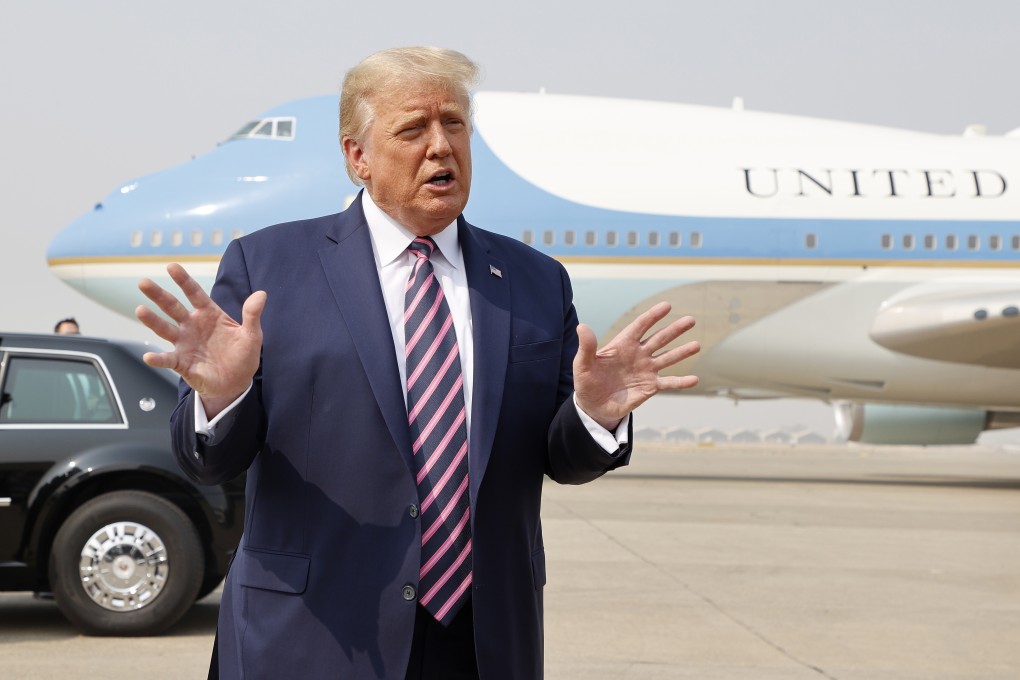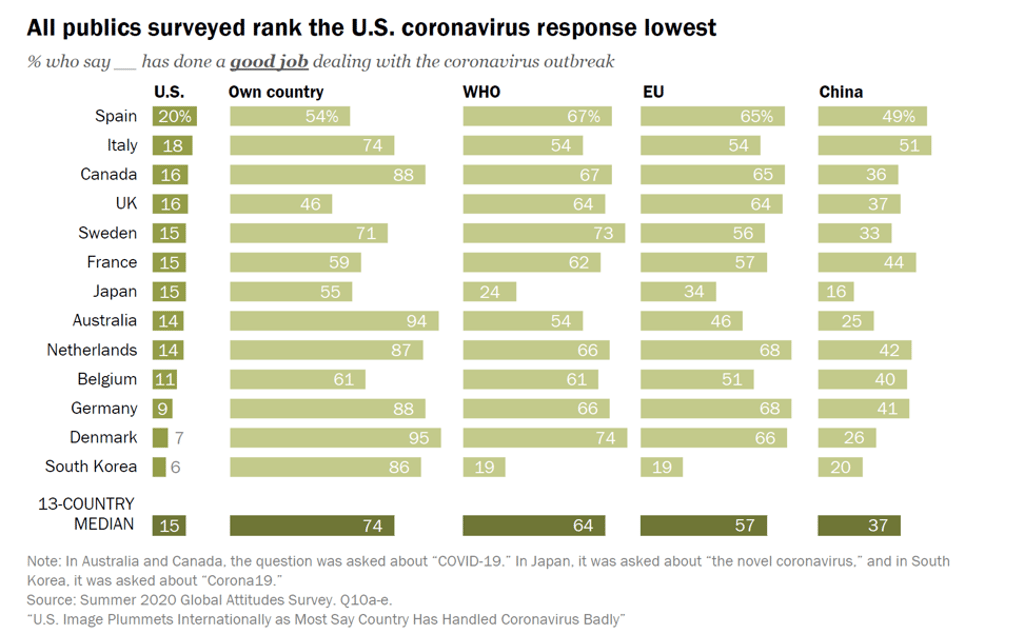US faces low approval rating by other countries for its handling of the coronavirus, says Pew Research Centre survey
- The median percentage of people polled in 13 countries who said the US has done a good job dealing with the coronavirus was only 15 per cent, the study says
- Those polled in each country rated the US response behind that of China and the World Health Organisation

Ask US President Donald Trump to rate his federal government’s handling of the coronavirus pandemic and you will get a predictably hyperbolic response.
“We’ve done a fantastic job,” he told supporters in Michigan last week. “I think we’ve probably done the best job of any country – certainly of any major country – anywhere in the world on the pandemic.”
But ask the same question of US allies, and you will get a drastically different and overwhelmingly damning response, a new poll by the Pew Research Centre shows.
The median percentage of people polled in 13 advanced economies in Europe, North America and Asia who said the US has done a good job dealing with the coronavirus was only 15 per cent, according to the study published Tuesday.
Those polled in each country rated the US response behind that of China and the World Health Organisation (WHO), both of which the Trump administration has sought to portray as culpable for the spread of the coronavirus.
